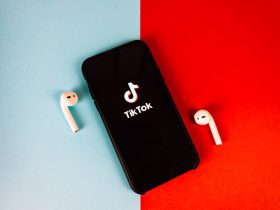KitaBeli says Indonesia’s Tier 2 and Tier 3 cities make up a $100 billion market, with 200 million consumers that contribute more than 50% of Indonesia’s gross domestic product
Complicated supply chains mean that consumers in Tier 1 and Tier 2 Indonesian cities often end up paying more for goods than their peers in large cities, like Jakarta.
KitaBeli is on a mission to change that, with its own distribution network and a direct-to-consumer social commerce app. Today the startup announced that it has raised $20 million in fresh funding led by Glade Brook Capital Partners, along with participation from returning investors AC Ventures and GoVentures, and new backer InnoVen Capital.
The funding will be used to expand into more small cities in Indonesia, and add new product categories like beauty, personal care and mother and baby products.
The startup says it has grown more than 10x in six months and claims to be the largest direct-to-consumer social commerce platform in Indonesia. It now has more than 400 employees.
KitaBeli says Indonesia’s Tier 2 and Tier 3 cities make up a $100 billion market, with 200 million consumers that contribute more than 50% of Indonesia’s gross domestic product. But they face more challenges ordering online compared to their peers in Tier 1 cities like Jakarta.
To address these, KitaBeli has opened a warehouse in every city it operates in, enabling same-day and next-day deliveries. It procures products directly from brands and principals, resulting in savings that can then be passed on to their customers. Finally, it addresses the trust issue through the social commerce model, in which users gather people from their social networks for group buys.
Co-founder and CEO Prateek Chaturvedi tells TechCrunch that when he moved from India (where his previous startup GetFocus was acquired by Mokapos), he was struck by the differences and similarities between the Indian and Indonesian e-commerce markets. For example, e-commerce in Tier 2 cities was underdeveloped compared to Tier 1 cities.
On digging deeper, we found that users in these smaller towns are buying online for the first time, and they face trust issues with these faceless services and need help and guidance on using the app, he said. As a result, KitaBeli experimented with social features in its app, like having agents, called Mitras, in each neighbourhood, referrals and group buying.
Fast-moving consumer goods were picked as KitaBeli’s first category because they are frequently purchased.
Since we are direct to consumers, we want users to build a habit of buying with us, Chaturvedi said.
To buy on KitaBeli, users open the app, place an order, then receive incentives for sharing these purchases with their friends. KitaBeli’s shoppers use it to purchase staples like rice, oil, sugar, milk and personal care items. Chaturvedi said each user generally spends $5 to $10 in every order, and each group usually consists of five to 25 people.









